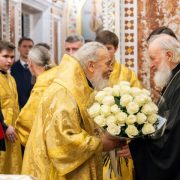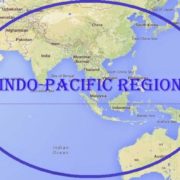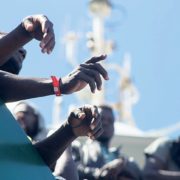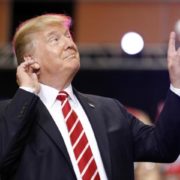The 19th Communist Party Congress, due to open on October 18, will be very important if not for anything else then because for the first time since Mao’s rule, basically only one man will decide all appointments, party General Secretary Xi Jinping. Furthermore, in Mao’s time, China was a speck in the international political and economic scenery; now China is a superpower.
Of course, a bit similarly to Mao’s times, Xi will have to deal with other power centers, the party apparatus, the State Owned Enterprises (SOEs), the military, et cetera. But each of them has been or is being reformed by Xi’s rule, and they are institutions, not factions, as they morphed into during Deng’s era. Deng Xiaoping in fact was a primus inter pares, first among equally senior veterans. The veterans brought him back to power in 1978 after they wrested it from the infamous “gang of four” with a de facto coup in 1976.
Each of those veterans, who were close to Deng, had his own line of influence. After Deng’s and the veterans’ demise, those lines of influence continued and additional ones sprung up, belonging to Party Secretary Jiang Zemin, some of his fellow Standing Committee members, or his successor, Hu Jintao.
These lines grew until they shaped into a cobweb of alternative, unsanctioned clout that prompted, oiled, or stopped the cogs of official power. And it increasingly did so for a profit. Clubs, connections exist everywhere, and maybe rightly so; but in China their dimension and importance had grown out of proportion.
This cobweb became a cancer that almost replaced the official power structure, but it is now being removed by the ongoing anticorruption drive. Yet, while sitting on the ruins of the old order, we fail to see what the new order will be, and the next congress should allow us to have at least a glimpse of what Xi has in mind.
Of course after the glimpse, there will be the issue of how Xi’s dream for China, and thus for the world, will be implemented, and how China and the world will react to this—but this will be an issue for the future, after we learn Xi’s program. This is program is shrouded in secrecy. No preview can be expected, and the workings of the party are at best opaque.
Two fields are the most delicate: the reform of SOEs and some significant political reform.
In any case, there could be elements on which to focus to size up deeper movements in Xi’s consolidation of power.
Will the Standing Committee be reduced to five members? This would concentrate power in the hands of Xi, and a signal of his grip. The Standing Committee was made up of five people at the 1955 Party Congress and was five people in 1987. But then the party structure was different. In 1955, Deng was out of the Standing Committee but he was secretary general, the linchpin between the five almighties, headed by Mao, and the rest of the party. In 1987, the five members of the Standing Committee had behind them an assembly of veterans who pulled the strings.
Now a Standing Committee of five would need other structures to work effectively, otherwise five people will be too few for the increased concerns of present China.
So, the Standing Committee might be kept at seven people, which would provide enough seats for all concerns. But it could also indicate that Xi was unable to move for an even more significant concentration of power.
An indication of how it went will also come of course from the people who will sit on the Standing Committee. Chen Min’er (born in 1960, just parachuted in as party secretary of Chongqing) and Hu Chunhua (born in 1963, party secretary of Guangdong) could be promoted, or just one of them or none of them.
Chen is rumored to be very close to Xi and a favorite who could be in line for succession, but maybe by then the rules for choosing the top leader will have changed. Hu, a protégé of former party secretary Hu Jintao, has seen his star dimming, but he is tough. He spent 200 months in Tibet and speaks conversational Tibetan. He could be an asset, if Xi believes he is loyal.
But more interesting will be to watch if there are new entries in the Standing Committee and in the Politburo, and if so, who they are. They could be many, and many could be quite new.
Confusion surrounds the fate of Wang Qishan, a close ally to Xi and head of the disciplinary commission. Wang should retire because of his age, but it is thought that Xi would like him to stay, which is against the previous rules.
Billionaire Guo Wengui, who escaped to America from China following charges of corruption, recently alleged Wang was also involved in graft, linked with Hainan Airlines. These allegations actually might reinforce Wang’s chances of staying on, as the party has a tradition to spite rumors and accusations spreading outside of party organs.
In fact, after the rumors, Wang received Singapore’s prime minister, and more significantly, Steve Bannon, ex–chief strategist for President Donald Trump. The president is expected to arrive in China on a state visit in early November. But Wang could also go because of some other calculations or issues.
Similarly, Li Keqiang, whose performance as premier was not stellar, should stay, but it is impossible to rule out he will be let go. Xi gave us many surprises in past years, and many more could be expected. All the other four members of the standing committee should go, but maybe some will stay.





